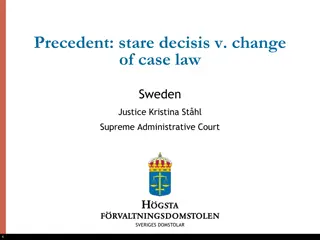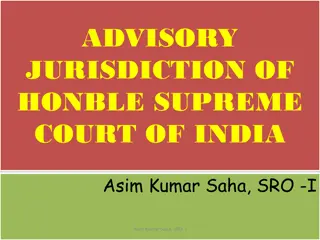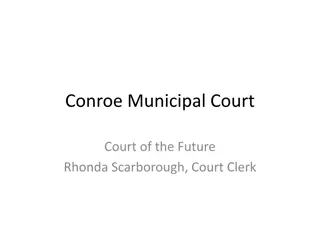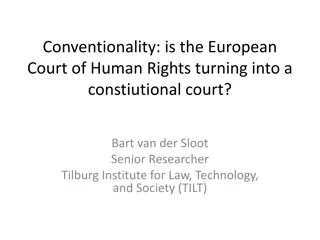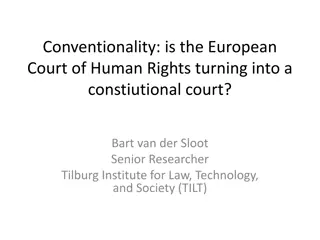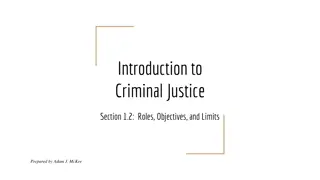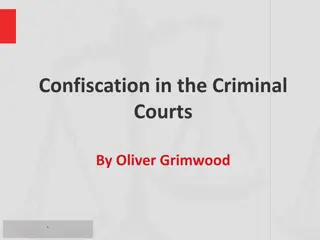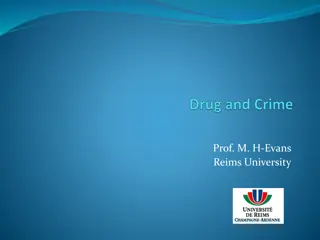Establishment of the International Criminal Court (ICC)
The International Criminal Court (ICC) was established following the Nuremberg and Tokyo war crimes trials, with discussions beginning during the negotiations on the 1948 Genocide Convention. The process culminated in the adoption of the ICC Statute in 1998, after much deliberation and compromise on various contentious issues. The ICC's jurisdiction, rules of procedure, and elements of crimes were finalized through international cooperation, leading to its official commencement on 1st July 2002.
Download Presentation

Please find below an Image/Link to download the presentation.
The content on the website is provided AS IS for your information and personal use only. It may not be sold, licensed, or shared on other websites without obtaining consent from the author. Download presentation by click this link. If you encounter any issues during the download, it is possible that the publisher has removed the file from their server.
E N D
Presentation Transcript
International Criminal Court (ICC) The work of the International Law Commission (ILC) After the Nuremberg and Tokyo war crimes trials, the UN started a process towards the creation of a permanent international criminal court. A proposal to establish a permanent international criminal court was discussed during the negotiations on the 1948 Genocide Convention.
Cont In the end, Article VI of the Genocide Convention only envisaged the future establishment of an international penal tribunal .
The Statute of the ICC In 1995, the General Assembly decided to convene a Preparatory Committee, inviting participation of Member States of the UN, non-governmental organizations and various international organizations. The Preparatory Committee held a number of meetings between 1996 and 1998 which resulted in the formulation of a Draft Statute.
Cont The Preparatory Committee s Draft Statute was submitted to the Diplomatic Conference of Plenipotentiaries on the Establishment of an ICC convened by the General Assembly on 15 June 1998 in Rome.
Cont The most controversial questions discussed at the conference were the role of the Security Council, the list of core crimes over which the court would have inherent jurisdiction, and the scope of its jurisdiction over persons who were not nationals of States parties. After finding a compromise, the Statute was adopted on 17 July 1998 by 120 in favour, with 21 abstentions and seven votes against.
Cont In addition to the Statute, the Diplomatic Conference adopted a Final Act, providing for the establishment of a Preparatory Commission by the UN General Assembly whose mandate was to draft a number of documents crucial to the operation of the ICC.
Cont The main task of the Commission was to draft the ICC Rules of Procedure and the ICC Elements of Crimes which the Commission accomplished within its deadline of 30 June 2000 when they were also adopted by general agreement among States. The Assembly of States parties formally adopted these two documents at the first session held on 3 10 September 2002.
Cont The ICC Statute entered into force on 1 July 2002, the first day of the month after the 60th day following the date of deposit of the 60th instrument of ratification. Before ratifying the Statute, most States needed to modify their domestic constitutions and laws in order to comply with the obligations imposed upon them by the Statute.
Cont The ICC is a permanent criminal court. It has jurisdiction over core crimes under international law, namely genocide, crimes against humanity and war crimes, and will exercise jurisdiction over the crime of aggression once a provision is adopted.
Cont The ICC can exercise jurisdiction only over crimes committed after the entry into force of the Statute, which is 1 July 2002. In the case of States that become parties to the Statute subsequent to its entry into force, the Court has jurisdiction over crimes committed after the entry into force of the Statute with respect to that State.
Cont The ICC is complementary to national criminal jurisdictions. Proceedings before the ICC might be initiated by a referral by a State party to the ICC Statute, referral by the UN Security Council acting under Chapter VII of the UN Charter or upon the initiation of an investigation by the Prosecutor acting on his own initiative.
Jurisdiction of the ICC as defined in its Statute Personal : nationals of States parties, regardless of where the acts were perpetrated. Subject-matter; a) genocide b) crimes against humanity c) war crimes d) aggression (lack of definition)
Cont Territorial: crimes committed on the territory of States parties, regardless of the nationality of the offender. Relationship to national courts: ICC is complementary to national jurisdictions.
Main goals of international criminal courts and tribunals to fight impunity and establish accountability. to bring to justice the most senior leaders responsible for international crimes. to maintain peace and security. to help in the process of reconciliation and peace-building.
Cont to render justice to the victims and give them a voice. to deter further crimes. to strengthen the rule of law. to assist in reforming or setting up national judiciaries.
INTERNATIONAL COURTS AND INTERNATIONAL COMMITEES FOR RED CROSS The international committee of red cross supports all efforts to promote respect for international humanitarian law and , in particular to punish war criminals . in this connection , it has already welcomed the establishment of the Hague and Arusha tribunals and actively participated in negotiations to establish a permanent international criminal court .
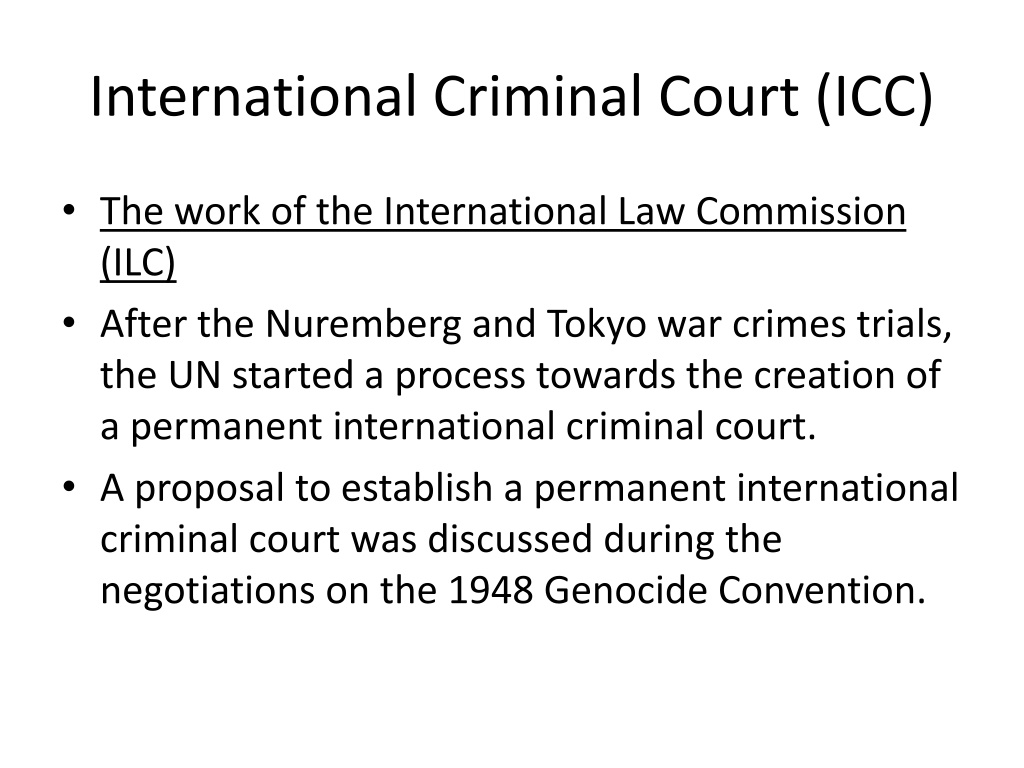

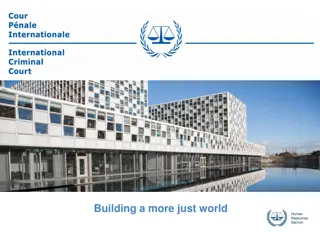





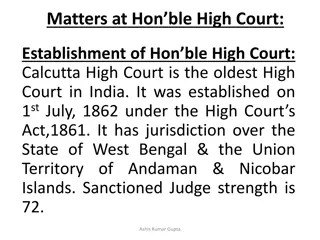

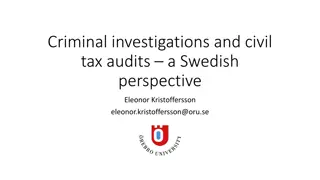






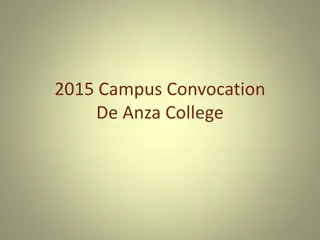




![Briefing on the Criminal Procedure Amendment Bill [B12-2021] to the Portfolio Committee on Justice and Correctional Services](/thumb/157093/briefing-on-the-criminal-procedure-amendment-bill-b12-2021-to-the-portfolio-committee-on-justice-and-correctional-services.jpg)




